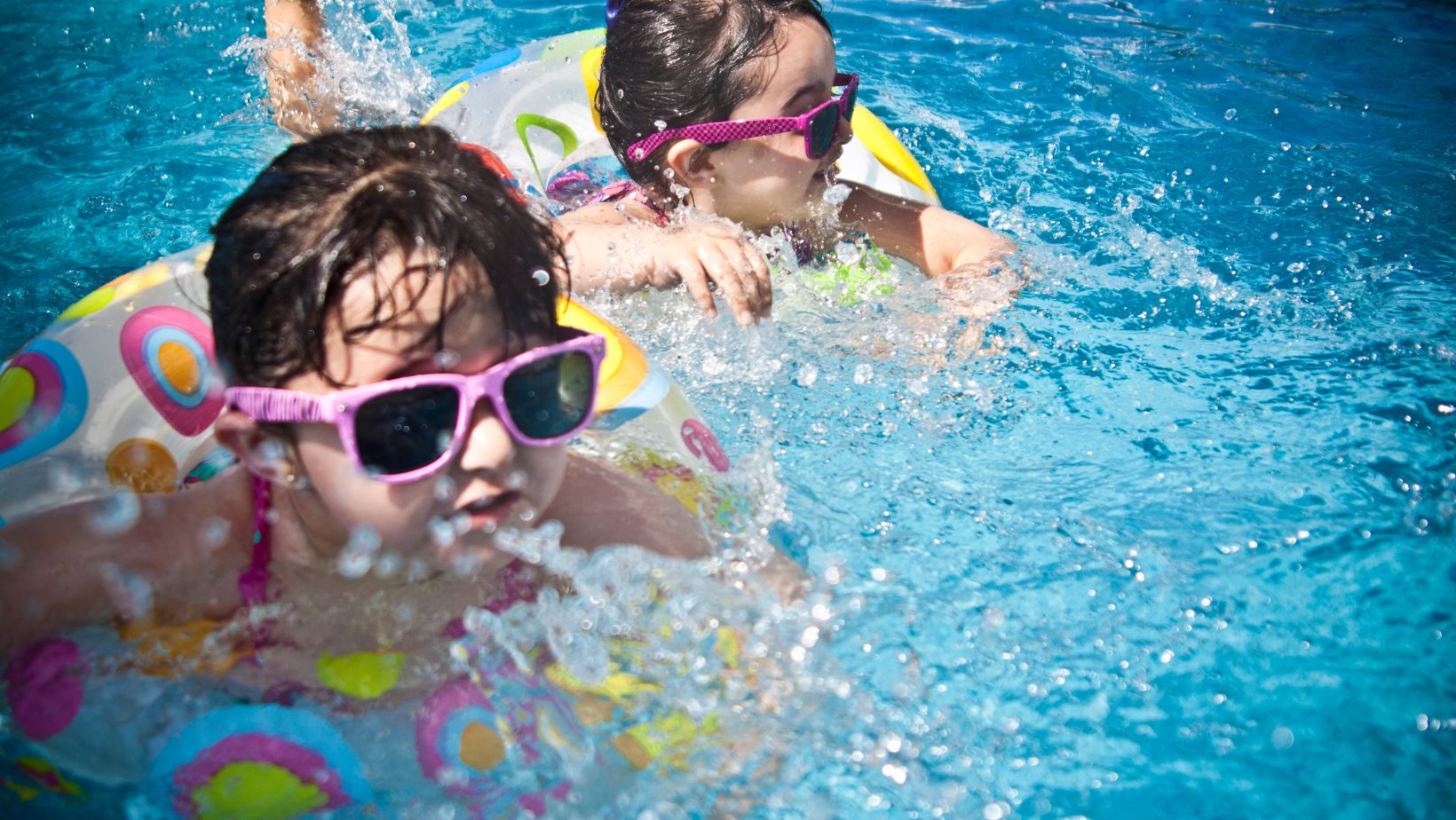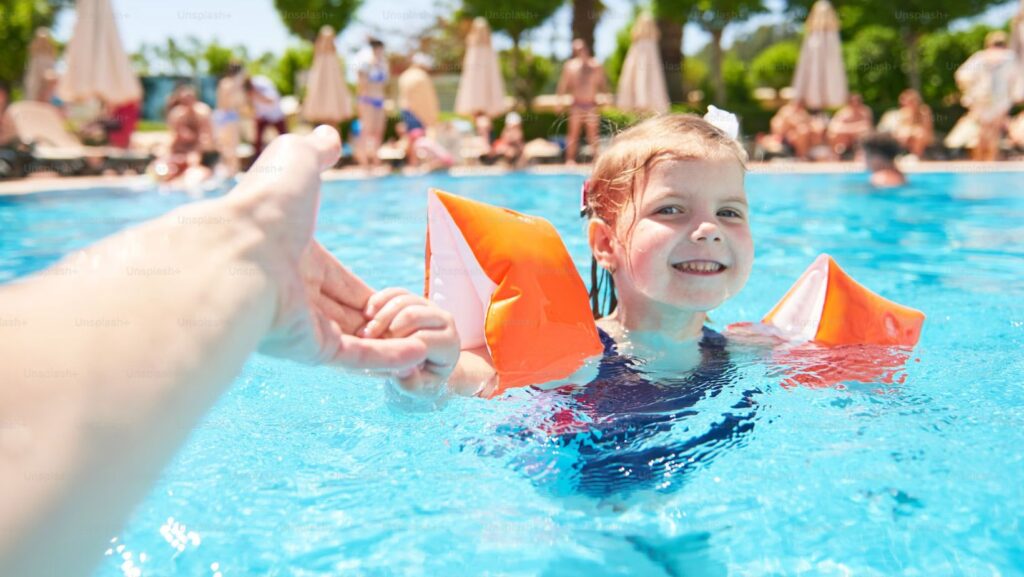Are you wondering if it’s time for your little one to take swimming lessons? Splashing around in the water is pure fun, but proper training offers many benefits. Beyond mastering strokes, your child can develop confidence, safety awareness, and lifelong skills in both indoor and outdoor spaces. In this article, we explain why your child should start swim lessons sooner rather than later.
Physical Development
Early swimming significantly improves strength, coordination, and endurance. Some sports primarily focus on specific muscle groups. In contrast, swimming provides a full-body workout that engages nearly every major muscle group. Children who swim regularly develop core stability, as they must balance their bodies in the water. This directly translates to improved posture and overall body control on land.

The rhythmic nature of swimming fosters a unique sense of coordination. Kids learn to synchronize their arm and leg movements while mastering breath control. This dual-tasking sharpens motor skills and builds resilience in adapting to challenging situations. As young swimmers push against water resistance, they cultivate endurance. This enables them to perform other physical activities with increased stamina and energy.
It’s A Great Hobby
As kids gain confidence and comfort in the pool, they may seek to swim at local beaches or join community swim teams. This opens up avenues for social interactions and friendships around shared interests.
Kids who learn to swim early can participate in various water-related activities (like kayaking, snorkeling, or scuba diving) as they grow older. Specialist websites can tell you when to start infant swim lessons, and help you find those near you. They also discuss water safety, physical development, and parent-child bonding.
Safety Awareness
When kids learn to swim young, they can maneuver confidently in water. They also acquire a keen understanding of their environment. This awareness can drastically reduce drowning incidents, which are one of the leading causes of accidental death among children. Your child can be trained in basic safety protocols, like identifying dangers around pools, or recognizing when help is needed. In turn, they can become proactive rather than reactive.
Early exposure to swimming fosters a deep-seated respect for water as an elemental force. Children who are taught the fundamentals of swimming are usually better at recognizing their limits. They’re also more likely to assess situations before jumping in blindly. This mindset encourages prudent decision-making, both in and out of the water. This reinforces the idea that prevention is always better than rescue.
Social Skills
This can be achieved through teamwork and effective communication. As kids navigate the water under the guidance of an instructor, they’re encouraged to support each other. This may involve cheering on a friend mastering their strokes, or working together in partner drills. These moments foster camaraderie, teaching children the value of cooperation and collective effort in overcoming challenges.
Swim lessons often incorporate group activities that require verbal interaction and non-verbal cueing among peers. During relay races or team-based games, kids learn how to express encouragement or provide constructive feedback in a fun setting. These interactions build their confidence and help them develop essential listening skills.
Cognitive Benefits
The structured environment of swim classes encourages kids to pay attention to their instructors while simultaneously being aware of their surroundings. This dual demand hones their ability to concentrate, which can translate into improved performance in other academic and social settings.

The rhythmic nature of swimming promotes mindfulness. As children master breathing techniques and stroke sequences, they learn to center their thoughts on the present moment. This contrasts with getting distracted by external stimuli or internal worries. This practice creates a good foundation for managing stress and anxiety – key skills for later life.
Lifelong Fitness Habit
Early swimming can foster a deep-seated love for physical activity that lasts a lifetime. When kids splash around in the water, they form positive associations with movement. They discover joy and freedom through exercise at an impressionable age. This helps demystify fitness. It shows young ones that staying active is an enjoyable part of daily life, rather than a mere chore.
When children celebrate their small swimming victories, they develop a sense of accomplishment and confidence. This encourages further exploration into various forms of physical activities beyond the pool. These could be team sports or adventures like hiking and cycling.
Early swim lessons enhance children’s safety around water while promoting physical fitness and confidence. Kids also tend to develop stronger motor skills and improved coordination. Additionally, these lessons foster social interaction and friendship building. The benefits extend beyond the pool, positively impacting children’s overall development and well-being.
